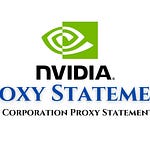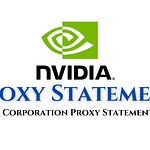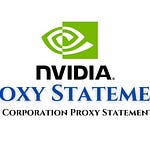Berkshire Hathaway Inc. - 2007 Shareholder Letter: Briefing Document
Source: Berkshire Hathaway 2007 Annual Letter to Shareholders
Main Themes:
This letter provides a comprehensive review of Berkshire Hathaway's performance in 2007, offers insights into Buffett's investment and business philosophy, discusses the macroeconomic environment, and outlines the outlook for various Berkshire businesses. Key themes include:
Strong Overall Performance with Emerging Challenges: Berkshire achieved significant growth in net worth and book value in 2007. However, certain sectors, particularly those linked to housing, faced headwinds due to the unfolding subprime mortgage crisis.
Emphasis on Enduring Business Moats: Buffett reiterates his focus on acquiring and owning businesses with sustainable competitive advantages ("moats") that protect their profitability over the long term.
The Power of Exceptional Management: The letter highlights the crucial role of talented, trustworthy, and passionate managers in Berkshire's decentralized structure.
Strategic Acquisitions: The acquisition of Marmon Holdings is presented as a significant event, reflecting Berkshire's continued pursuit of large, sensible business purchases.
Caution Regarding Financial Folly and Bubbles: Buffett sharply criticizes the "weakened lending practices" and the belief in perpetually rising house prices that led to significant problems in the financial sector.
Long-Term Perspective and Intrinsic Value: The letter emphasizes evaluating investments and businesses based on their long-term earnings power and widening moats, rather than short-term market fluctuations.
Analysis of Berkshire's Diverse Businesses: Buffett provides detailed updates on the performance and outlook for Berkshire's four main operating sectors: Insurance, Regulated Utility Business, Manufacturing/Service/Retailing, and Finance/Finance Products.
Discussion of Investments and Derivatives: The letter reviews key equity investments, including the profitable sale of PetroChina, and provides an explanation of Berkshire's derivative contracts.
Macroeconomic Observations: Buffett shares his views on the weakening US dollar and the unsustainability of the US trade deficit.
Succession Planning: Updates are provided on the identification of potential successors for both the CEO and investment management roles.
Critique of Accounting Practices: Buffett criticizes certain accounting methods used by public companies to "juice earnings," particularly regarding stock options and pension fund return assumptions.
The Inherent Uncertainty of Insurance Loss Reserves: Buffett discusses the challenges and inherent guesswork involved in estimating insurance loss reserves.
Invitation to the Annual Meeting: The letter serves as an invitation to the Berkshire Hathaway Annual Meeting, highlighting the unique shareholder experience.
Most Important Ideas and Facts:
Berkshire's 2007 Performance:Net worth increased by $12.3 billion, an 11% increase in per-share book value.
Compounded annual growth in book value since 1965 reached 21.1%.
Operating businesses generally performed well, with housing-related businesses being exceptions.
The Housing Crisis:Buffett warned about "weakened lending practices" in the previous year's letter and highlights the "staggering problems" faced by some major financial institutions.
He uses the analogy: "You only learn who has been swimming naked when the tide goes out – and what we are witnessing at some of our largest financial institutions is an ugly sight."
The belief that "house prices would forever rise" led to irresponsible lending.
Acquisition of Marmon Holdings:Berkshire contracted to purchase 60% of Marmon for $4.5 billion, with the remainder to be acquired within six years.
This is described as the "largest cash purchase in Berkshire’s history."
The deal was done quickly and based on trust, without extensive advisors or negotiations.
Business Acquisition Criteria:Buffett reiterates the key criteria for businesses Berkshire seeks: "(a) a business we understand; (b) favorable long-term economics; (c) able and trustworthy management; and (d) a sensible price tag."
He emphasizes the importance of an "enduring 'moat' that protects excellent returns on invested capital."
Examples of moats include being the low-cost producer (GEICO, Costco) or possessing a powerful brand (Coca-Cola, Gillette, American Express).
The Distinction Between Great, Good, and Gruesome Businesses:Great: High returns on invested capital with minimal reinvestment needs (e.g., See's Candy). "It's far better to have an ever-increasing stream of earnings with virtually no major capital requirements. Ask Microsoft or Google."
Good: Attractive returns but require significant reinvestment for growth (e.g., FlightSafety, regulated utilities).
Gruesome: Rapid growth requiring significant capital but yielding little or no money (e.g., airlines). "Indeed, if a farsighted capitalist had been present at Kitty Hawk, he would have done his successors a huge favor by shooting Orville down."
Investment Insights:Progress of investments is measured by earnings improvement and the widening of their moats, not solely by market prices.
The profitable sale of PetroChina generated a $3.5 billion gain and $1.2 billion in taxes.
Insurance Operations:GEICO continued to grow its market share significantly. "When Berkshire acquired control in 1995, that share was 2.5%. Not coincidentally, annual ad expenditures by GEICO have increased from $31 million to $751 million during the same period."
General Re's reputation has been restored under new leadership.
Ajit Jain's specialty reinsurance operation continues to be a major asset.
The insurance business experienced two years without major catastrophes, but lower profit margins are expected in 2008.
Derivatives:Berkshire holds a significant portfolio of derivative contracts, primarily credit default swaps and put options on stock indices.
Buffett believes these contracts will be profitable over the long term, despite potential short-term volatility in reported earnings due to accounting rules. "In all cases we hold the money, which means that we have no counterparty risk."
Macroeconomic Concerns:The weakening US dollar is attributed to Americans buying more foreign goods than the rest of the world buys from the US.
The trade deficit is deemed unsustainable. "Our country’s weakening currency is not the fault of OPEC, China, etc. Other developed countries rely on imported oil and compete against Chinese imports just as we do."
Berkshire held a direct currency position in the Brazilian real, which yielded significant profits.
Succession Planning:Three internal candidates have been identified for CEO succession.
Four candidates have been identified to succeed Buffett in managing investments.
Critique of Accounting:Buffett criticizes the historical treatment of stock options as non-expenses and the overly optimistic investment return assumptions used for pension expense calculations. "Beware the glib helper who fills your head with fantasies while he fills his pockets with fees."
Insurance Loss Reserves:Estimating insurance loss reserves is inherently uncertain, involving significant guesswork about future claims. "At our insurance companies we have an unknown, but most certainly large, number of 'rented suits' buried around the world. We try to estimate the bill for them accurately."
Annual Meeting:Details are provided for the upcoming annual meeting, encouraging shareholders to attend and participate in the various events and discounts offered. "So join us on May 3rd at the Qwest for our annual Woodstock for Capitalists. We’ll see you there."
This letter provides valuable insights into Warren Buffett's thinking and offers a detailed look at Berkshire Hathaway's diverse operations and strategic direction in a year marked by both significant achievements and emerging economic challenges.














Share this post